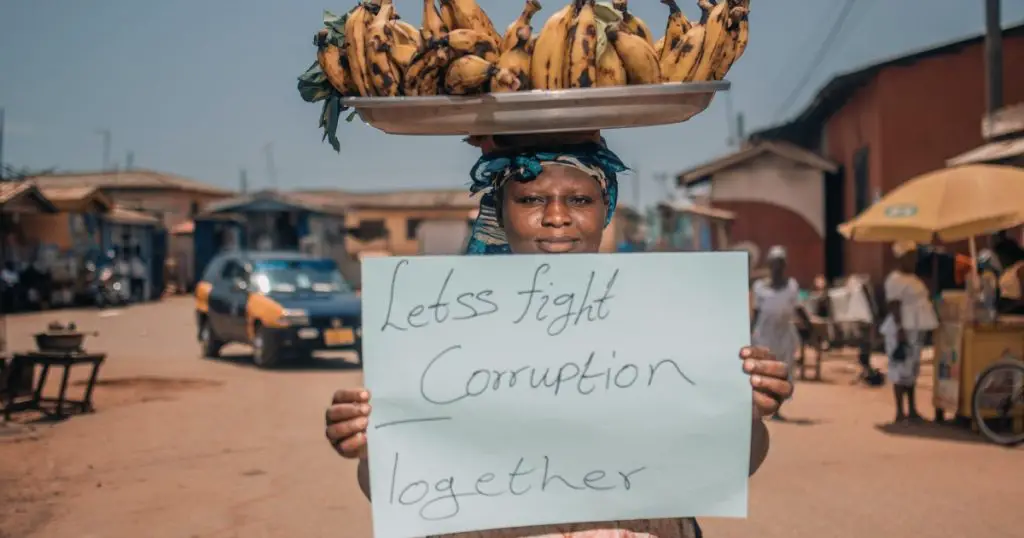- Transparency International has listed the 20 most corrupt countries in Africa in its annual Corruption Perception Index report
- South Sudan is both the most corrupt country globally and in Africa, with a corruption perception index score of 11, the lowest in the world
- Somalia is ranked the continent’s most corrupt country, with a corruption perception index score of 13
- Overall, the finding indicates that the average index score in Africa is 33, the lowest in the world
A new report has listed the 20 most corrupt countries in Africa, with at least four nations coming from East Africa.
The Transparency International Annual Corruption Perception Index Report revealed that out of the 180 countries surveyed globally, 44 were in Africa.
As reported by Business Insider, South Sudan is both the most corrupt country globally and in Africa, with a corruption perception index score of 11, the lowest in the world.
Somalia is ranked the continent’s most corrupt country, with a corruption perception index score of 13. Libya and Equatorial Guinea tie with a perception score of 17, followed by the Democratic Republic of Congo and Burundi with 19 points each.
Chad, Sudan and Comoros are tied with a corruption perception index score of 20 each. The countries are followed by Guinea Bissau and Congo at 21 points, followed by Eritrea at 22 and Zimbabwe at 23.
Also on the list are Nigeria and the Central African Republic, who tied with a corruption perception index score of 24, followed by Guinea with 25 points and Mozambique and Madagascar, who tie with 26 points.
Others include Uganda and Cameroon, who scored 27 points.
According to the publication, Transparency International uses the index to rank countries globally on a scale of zero to 100, with zero being the most corrupt and 100 being the least.
The index has been tracking public sectors since 1995, Business Insider noted.
Overall, the finding indicates that the average index score in Africa is 33, the lowest in the world.
The finding comes even as Africans observe that things have only got worse.
Things getting out of hand
As previously noted by Afrobarometer, most citizens in at least 18 countries said things had worsened between 2019 and 2020.
Those sampled said their governments were doing too little to control corruption, with most saying they would risk retaliation should they get involved in reporting the vice. The report found that on average, across 18 countries, six in 10 Africans (59%) say that corruption increased in their country during the previous year, including 41% who say it increased.
Perceptions that corruption is getting worse are most widespread in Gabon (82%), Lesotho (79%), and Mali (74%), as well as in Namibia (74%) — even though survey fieldwork in Namibia was completed before the #Fishrot corruption scheme was exposed in November 2019. Angola is the only surveyed country where more people see a decrease (44%) than an increase (33%) in corruption.
According to Afrobarometer, the situation worsened most dramatically in Mali, where the proportion reporting that corruption is increasing has risen by 43 percentage points since 2014, from 31% to 74%, followed by Gabon (+30 points), Côte d’Ivd’Ivoire5 points) and Guinea (+25 points).
In contrast, in three countries, the number who report that corruption is increasing has dropped by significant margins: Sierra Leone (-30 percentage points), Ghana (-23 points) and Nigeria (-20 points).
Interestingly, the surveys found that Africans are most likely to see the police as corrupt, with almost half (48%) of Africans saying “most” if not “all” police officials are involved in graft, in addition to 36% who see “som” of them” as “corrupt. Over one-third of citizens see widespread corruption in parliament, the civil service, the legal system, the tax office and the presidency
Overall, perceived corruption varies across countries and institutions, but three countries — Guinea, Gabon and Mali — appear consistently among the five worst performers. Cabo Verde consistently ranks at the least corrupt end of the scale across all institutions, frequently joined by Botswana and Tunisia.
Africa losing billions in high-value, low-weight commodities
